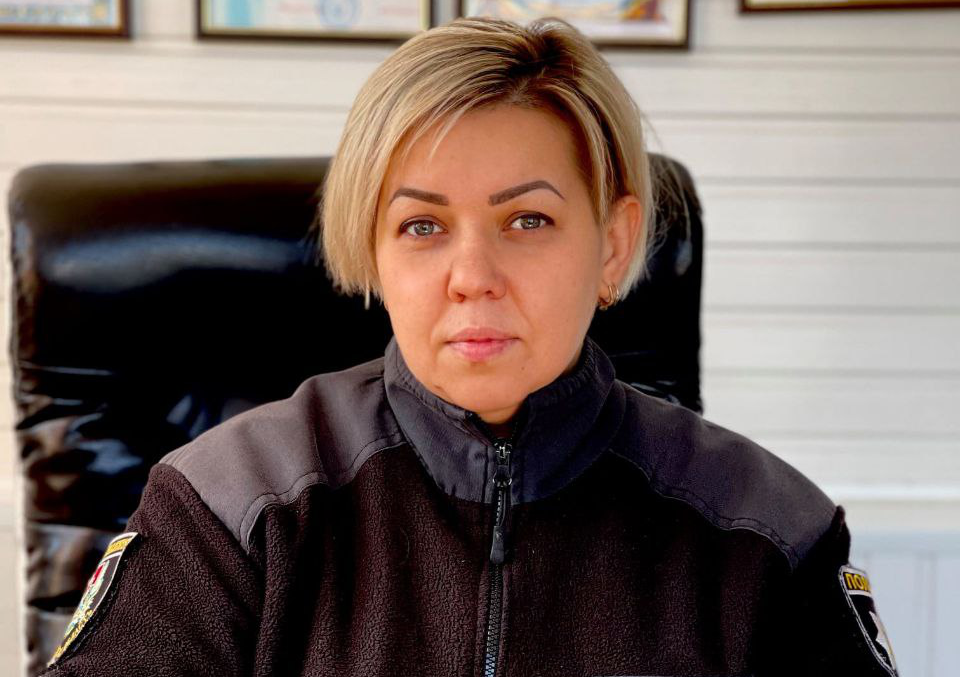In the words of Natalia Kalyuzhna: “Women began to talk loudly about the violence”
Date:

Natalia Kalyuzhna is a Police Captain and Head of the Counteracting Gender-based Violence Unit at the Main Directorate of the National Police in Sievierodonetsk, a city in the conflict-affected eastern part of Ukraine. She applies innovative approaches to address the needs of violence survivors and women at risk.
![]()
From my early childhood, I wanted to become a policewoman. When I started my career, women accounted for a small percentage of police officers. Back then, women in the police weren’t able to reach senior positions. There was a strong belief that female officers could not bring something to the table in law enforcement. Luckily, times have changed since then and women’s presence in public security forces has increased. Now, up to 30 per cent of our police officers are women.
I began as a squaddie and was raised to Police Captain and Head of the Countering Gender-based Violence Sector. For many years, I served as a Field Service Officer. I witnessed how many women struggle with domestic violence. Domestic violence is a horrific reality for many families.
Our department works in a rural area close to Sievierodonetsk. Gender stereotypes and harmful traditions are still strong there. Society often condones and normalizes harmful and violent behavior, which makes rural women more vulnerable to violence.
We try to keep services for survivors available and easily approachable. Being in a senior position, I always share my mobile number with survivors, so that they can call me anytime, and I will try to help. My department also works closely with the regional centre providing psychological aid to support survivors.
In 2017, Sievierodonetsk became one of three cities that piloted innovative projects aimed at fighting domestic violence. In the framework of the project, we created a new police unit – a specialized group of police officers whose duty is to respond to cases of domestic violence. Our experience with the implementation of this project provided important data for the development of the country’s law on domestic violence.
Four years ago, we had up to 100 reported domestic violence cases per year; now it is up to 1,300. The increase in reported cases of incidents of domestic violence shows that our encouragement to call the police when witnessing or experiencing domestic violence works. Women began to talk loudly about the violence.”